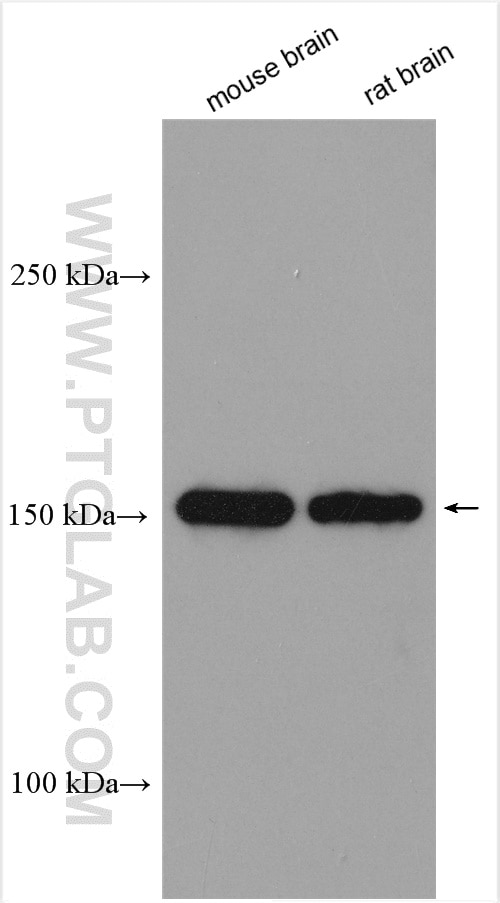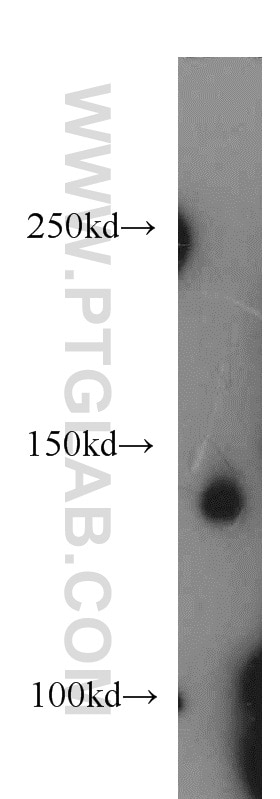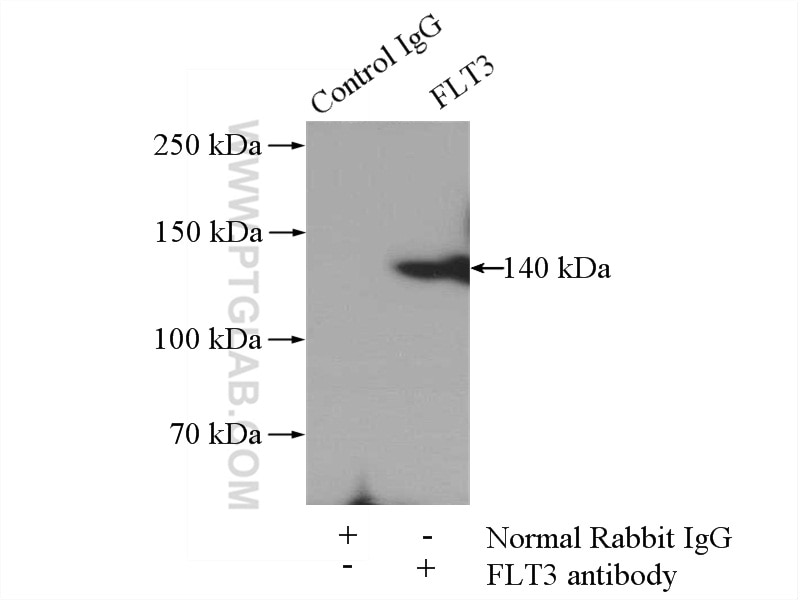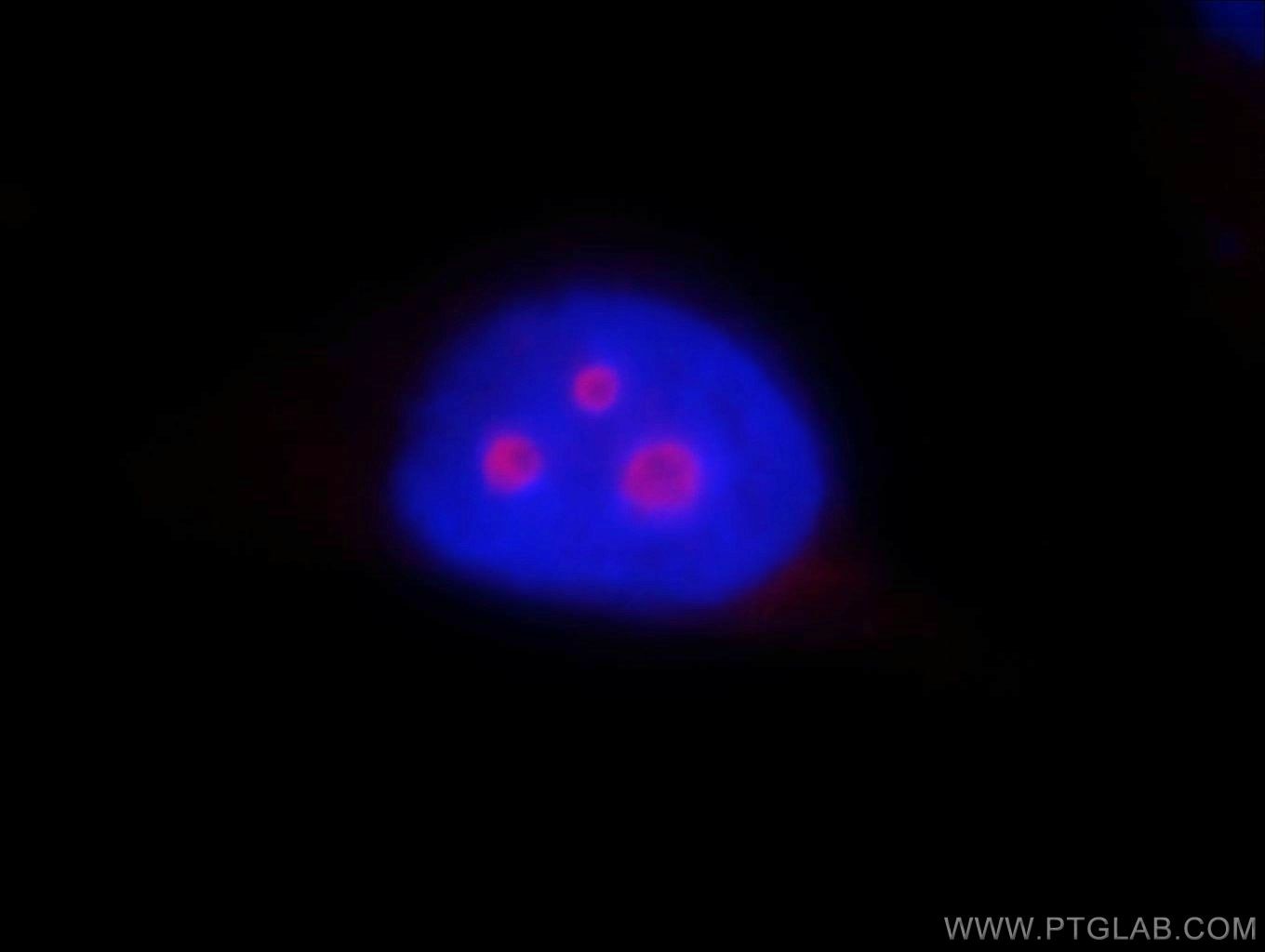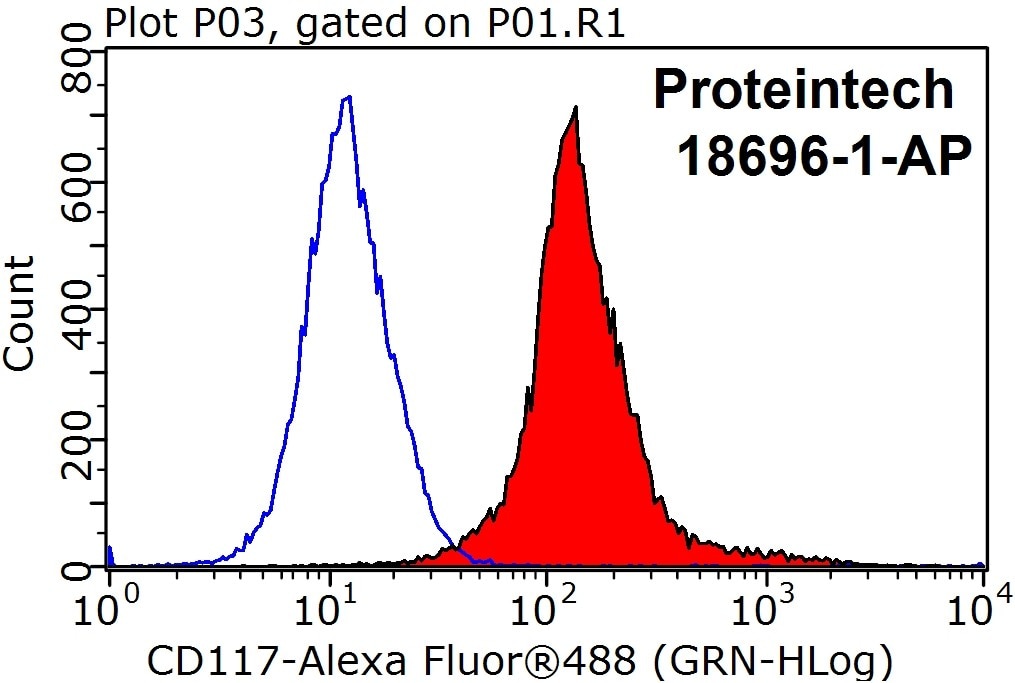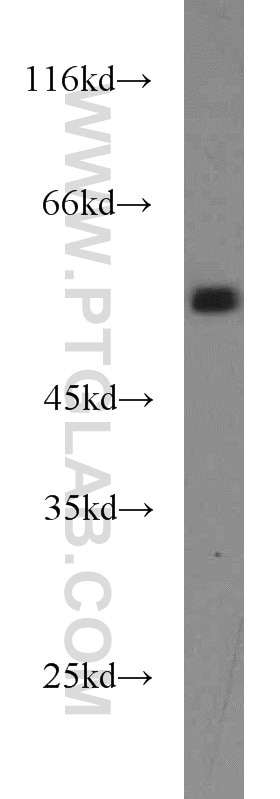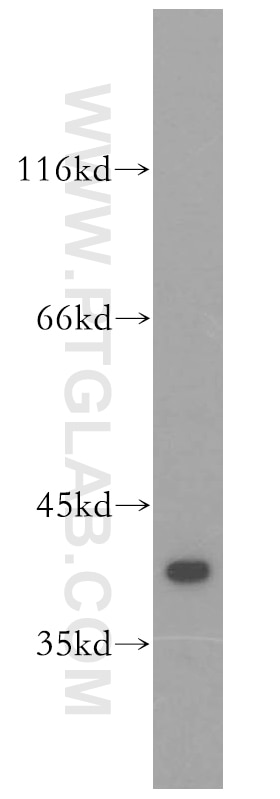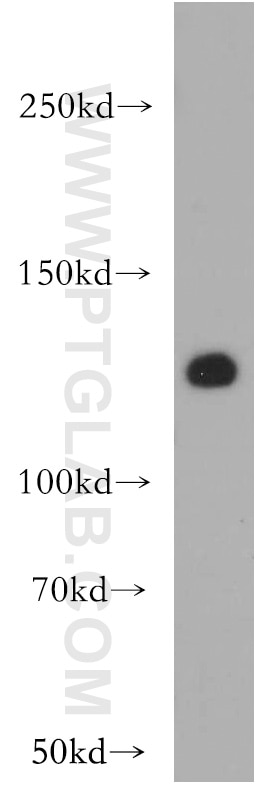Anticorps Polyclonal de lapin anti-FLT3
FLT3 Polyclonal Antibody for WB, IP, ELISA
Hôte / Isotype
Lapin / IgG
Réactivité testée
Humain, rat, souris
Applications
WB, IP, IF, ELISA
Conjugaison
Non conjugué
N° de cat : 21049-1-AP
Synonymes
Galerie de données de validation
Applications testées
| Résultats positifs en WB | tissu cérébral de souris, tissu cérébral de rat |
| Résultats positifs en IP | tissu cérébral de souris |
Dilution recommandée
| Application | Dilution |
|---|---|
| Western Blot (WB) | WB : 1:500-1:2000 |
| Immunoprécipitation (IP) | IP : 0.5-4.0 ug for 1.0-3.0 mg of total protein lysate |
| It is recommended that this reagent should be titrated in each testing system to obtain optimal results. | |
| Sample-dependent, check data in validation data gallery | |
Applications publiées
| WB | See 5 publications below |
| IF | See 1 publications below |
| IP | See 1 publications below |
Informations sur le produit
21049-1-AP cible FLT3 dans les applications de WB, IP, IF, ELISA et montre une réactivité avec des échantillons Humain, rat, souris
| Réactivité | Humain, rat, souris |
| Réactivité citée | Humain, souris |
| Hôte / Isotype | Lapin / IgG |
| Clonalité | Polyclonal |
| Type | Anticorps |
| Immunogène | FLT3 Protéine recombinante Ag15391 |
| Nom complet | fms-related tyrosine kinase 3 |
| Masse moléculaire calculée | 993 aa, 113 kDa |
| Poids moléculaire observé | 140-160 kDa |
| Numéro d’acquisition GenBank | BC036028 |
| Symbole du gène | FLT3 |
| Identification du gène (NCBI) | 2322 |
| Conjugaison | Non conjugué |
| Forme | Liquide |
| Méthode de purification | Purification par affinité contre l'antigène |
| Tampon de stockage | PBS avec azoture de sodium à 0,02 % et glycérol à 50 % pH 7,3 |
| Conditions de stockage | Stocker à -20°C. Stable pendant un an après l'expédition. L'aliquotage n'est pas nécessaire pour le stockage à -20oC Les 20ul contiennent 0,1% de BSA. |
Informations générales
FLT3 (also known as CD135 or FLK2) is a tyrosine-protein kinase that acts as a cell-surface receptor for the cytokine FLT3LG and regulates differentiation, proliferation, and survival of hematopoietic progenitor cells and of dendritic cells. FLT3 was originally identified by its expression in hematopoietic stem/progenitor cells (PMID: 7507245). It is important for the normal development of hematopoietic stem/progenitor cells. Mutations that result in the constitutive activation of this receptor result in acute myeloid leukemia and acute lymphoblastic leukemia.
Protocole
| Product Specific Protocols | |
|---|---|
| WB protocol for FLT3 antibody 21049-1-AP | Download protocol |
| IP protocol for FLT3 antibody 21049-1-AP | Download protocol |
| Standard Protocols | |
|---|---|
| Click here to view our Standard Protocols |
Publications
| Species | Application | Title |
|---|---|---|
Cell Rep Activation of GPR44 decreases severity of myeloid leukemia via specific targeting of leukemia initiating stem cells | ||
J Med Chem Proteolysis-Targeting Chimera (PROTAC) Modification of Dovitinib Enhances the Antiproliferative Effect against FLT3-ITD-Positive Acute Myeloid Leukemia Cells | ||
Bioorg Med Chem Synthesis and biological evaluation of 4-(4-aminophenyl)-6-methylisoxazolo[3,4-b] pyridin-3-amine covalent inhibitors as potential agents for the treatment of acute myeloid leukemia. | ||
Biochem Biophys Res Commun The angiogenic factor Egfl7 alters thymogenesis by activating Flt3 signaling. | ||
Med Mol Morphol An analysis of monocytes and dendritic cells differentiated from human peripheral blood monocyte-derived induced pluripotent stem cells. | ||
FASEB J Activation of FMS-like tyrosine kinase 3 protects against isoprenaline-induced cardiac hypertrophy by improving autophagy and mitochondrial dynamics |
